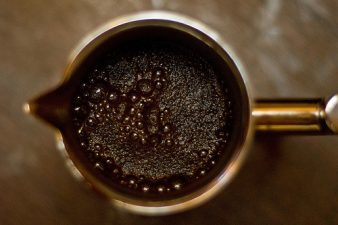A solution to keeping fruit and veggies fresh longer in your fridge, as well as to reducing the “islands” of plastic wastes now floating in the world’s oceans, may be on its way to becoming reality.
The Israel company StePac L.A.has come out with a special plastic packaging material, that they say will not only keep your produce looking and fresh for up to 10 times longer, but is also biodegradable.
The material, known as X-Tend-branded modified atmosphere/modified humidity packaging “creates favorable inside-the-bag atmospheric conditions for fruits and vegetables while proprietary engineering of Xtend polymers ensure correct balance between oxygen and carbon dioxide,” according to Don Stidham, president of the San Diego based company subsidiary, in the USA.
The packaging is excellent for a number of different kinds of fruit and vegetables, including bananas, pears, cherries, green onions, kiwi fruit, pomegranates, as well as fresh herbs and some “stone fruit” like plums and nectarines.
Bananas packaged in this material keep from getting ‘over-ripe’ for up to 10 days; and fresh broccoli for up to 28 days.
The material is said to have a store or home “shelf life” for up to one year. And when finally disposed of, it breaks down in the soil much quicker than other kinds of plastic wrapping material, which can take years to decompose.
StePac Israel was established in 1992 and is located in the Tefen Technological Industrial Park outside of Haifa.
According to company CEO, Israel Ben-Tzur, StePac X-Tend packaging material is “doing very well in Central and South America (both big seasonal fruit exporters) as well as in European countries and Turkey.”
While information available on the packaging material gives it a very high rating in regards to preserving the “shelf life” of fruits and vegetables, information on the time frame of its chemical breakdown, once discarded, is not too readily available.
Perhaps a reason for this is that the material simply hasn’t been around that long. It could be that the material is not truly biodegradable, but just crumbles up into little bits and pieces of plastic in the garbage dump.
In today’s ever increasing environmental awareness climate we are living in, it might be a good idea to know just how long it takes for this material to “return to the earth” and whether any caustic chemicals would cause any soil contamination; as is well known to be the case in most polyester and polymer based plastics.
We all might also wonder if the material can be included in our backyard compost pile – if it is really as degradable as the company claims it is.





Update: a company representative wrote to Green Prophet stating that the plastics solution is degradable, not biodegradable. The difference is important. Degradable plastic just breaks up into tiny little pieces, just making the plastic waste more difficult to clean up.
Recycling should be an afterthought of obligatory consumption. If you don’t need something, don’t buy it because you know it’s going to end up in the waste stream eventually. Why buy bottled water, for example? It’s pricier than gasoline and 40% tap water. Sounds like a no-brainer to me!
http://www.thinkoutsidethebottle.org